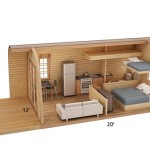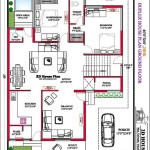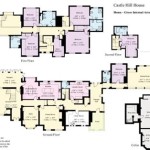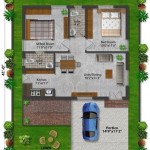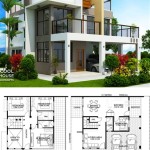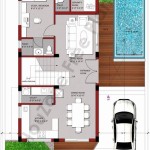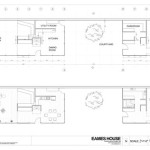Essential Aspects of Arabic House Floor Plans
Arabic-style houses have a distinct architectural style that reflects the region's cultural and environmental influences. Traditional Arabic house floor plans embody a harmonious blend of functionality, privacy, and a strong connection to nature. Here are some essential aspects to consider:
Central Courtyard:
The courtyard, known as a "sahn," is a central feature of many traditional Arabic houses. It serves as a social hub, a gathering space for family and friends, and a source of natural light and ventilation. The courtyard is often surrounded by a colonnade or arcade that provides shade and privacy.
Symmetry and Order:
Arabic house plans often exhibit a strong sense of symmetry and order. The main entrance is typically located at the center of the façade, and the rooms are arranged symmetrically around a central axis. This symmetry creates a balanced and harmonious appearance.
Courtyards and Gardens:
Courtyards are not only found at the center of the house but also in other areas such as the entrance or the living room. They bring the outdoors inside, creating a lush oasis within the home. Gardens are also common features, providing a connection to nature and a source of relaxation.
Privacy and Separation:
Traditional Arabic houses have a strong emphasis on privacy, especially for women. The entrance often leads into a vestibule or foyer that separates the public from the private areas of the home. The living quarters are typically located on the upper floor, away from the street level.
Decorative Elements:
Arabic houses are renowned for their intricate decorative elements. Arches, domes, and ceramic tiles are commonly used to embellish the exterior and interior of the home. Calligraphy and other Islamic motifs are often incorporated as well, adding a touch of artistic beauty.
Functionality and Comfort:
Despite their architectural sophistication, Arabic house floor plans prioritize functionality and comfort. The rooms are designed to be spacious and airy, with high ceilings and large windows. The use of natural materials such as wood, stone, and plaster create a warm and inviting atmosphere.
Modern Adaptations:
While traditional Arabic house plans remain highly influential, modern adaptations have emerged to meet contemporary needs. These adaptations may include the incorporation of modern amenities, such as air conditioning or Western-style kitchens, while still preserving the essence of the traditional Arabic architectural style.

Arabic Libyan Home Plan Square House Plans With Photos Design Floor

Arabia 2214 1049 3 Bedrooms And 2 5 Baths The House Designers

Arabic Home Plan House Plans Moroccan Style Architecture Design

Arabic Villa Pencil On Trace Photo Moroccan House Plan Design Styles

Pin By هزاع On مخططات معمارية Luxury House Plans Mansion Home Design Floor

28 Arabic Houses Ideas House Design Courtyard Styles

Floor Plans Villa Lifestyle Arab Arch Arabic House Design Duplex

Casa Arabe Courtyard House Plans Arabic Design Architecture Site Plan

Two Story Small House Plans Arab Arch

Floor Plans For Type Grand Courtyard Arabic 6 Bedroom Villas In Signature Frond F Bayut Dubai

